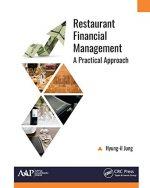Answered step by step
Verified Expert Solution
Question
1 Approved Answer
pls help me out thank you n = PV = FV / (1 + i) FV = the future value PV = the present value
pls help me out thank you 


n = PV = FV / (1 + i)" FV = the future value PV = the present value (principal) the number of compounding periods i = the periodic interest rate j = yearly interest rate m = compounding periods per year (A) Pauline Chen wants to find the principal that will amount to $16,956.70 in six years at 11.98% p.a. compounded annually. (Do not round i or n.) Do not include the $ sign, or the, to indicate thousands. Money must always be correct to exactly 2 decimal places. (B) Please help Kate Lau find the present value of $6,275.83 due in six years at 6.75% p.a. compounded quarterly. (Do not round i or n.) Do not include the $ sign, or the, to indicate thousands. Money must always be correct to exactly 2 decimal places. (C) Kseniya Moyiseyenko really wishes you could tell her what principal will amount to $5,898.63 six years from today if interest is 5.28% p.a. compounded monthly. (Do not round i or n.) Do not include the $ sign, or the, to indicate thousands. Money must always be correct to exactly 2 decimal places. (D) Kelly Yoo thinks it would be very funny if you had to find the present value of $4,000.00 due in five years and eight months if money is worth 7.08% p.a. compounding quarterly. (Do not round i or n.) Do not include the $ sign, or the, to indicate thousands. Money must always be correct to exactly 2 decimal places. (e) Chloe Oberbichler is telling you that you rlust determine the principal that will accumulate to $4,027.84 from March 1, 2005 to December 1, 2010 at 5.19% p.a. compounded semi- annually. (Do not round i or n.) Calculate this question in terms of years and months, don't use the exact number of days. Do not include the $ sign, or the, to indicate thousands. Money must always be correct to exactly 2 decimal places. (F) Rebecca Chae is purchasing a membership in the local Chamber of Commerce to promote her business. She has two options: "Pay Now Option": pay $434.00 now or Pay Later Option": pay $123.00 now, $146.00 in 12 months, and $179.00 in 15 months. Which option is better (less costly) if money is worth 5.6% compounded monthly? (Do not round i or n.) Present value of Pay Later Option Do not include the $ sign, or the, to indicate thousands. Money must always be correct to exactly 2 decimal places. "Pay Now" or "Pay Later 


Step by Step Solution
There are 3 Steps involved in it
Step: 1

Get Instant Access to Expert-Tailored Solutions
See step-by-step solutions with expert insights and AI powered tools for academic success
Step: 2

Step: 3

Ace Your Homework with AI
Get the answers you need in no time with our AI-driven, step-by-step assistance
Get Started


